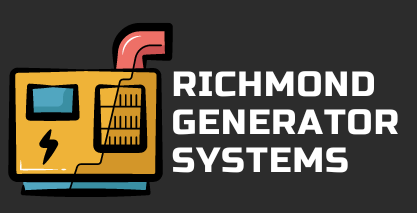
Whole House Generators in Ampt Hill VA
When considering a whole house generator, it's essential to understand what it is, how it functions, and what options are available. Having a reliable power backup can be crucial, especially during outages or emergencies. A whole house generator is a backup power system designed to supply electricity to an entire home during a power outage. Unlike portable generators, which only power a few appliances, whole house generators provide a seamless transition to backup power, keeping all essential systems running. There are several types of whole house generators:
- Standby Generators: Permanently installed and connected to your home’s electrical system. They automatically start up when the power goes out.
- Automatic Transfer Switch Generators: Equipped with an automatic transfer switch that detects power loss and starts the generator without any manual intervention.
- Manual Transfer Switch Generators: Require manual operation to switch power from the utility to the generator.
What We Offer
We specialize in providing high-quality
whole house generators in Ampt Hill, VA tailored to meet your specific needs. Our offerings include:
- Residential Generators
- Commercial Generators
- Portable Generators
- Electric Generators
- Propane Generators
- Solar Generators
- Generator Repairs
- Generator Maintenance
- Generator Parts
How Do They Work?
Whole house generators operate by detecting when the main power supply fails. Once a power outage is detected, the generator automatically starts up and begins supplying power to your home. This process involves:

We will get back to you as soon as possible.
Please try again later.
- Detection: The generator's automatic transfer switch monitors the power supply.
- Start-Up: Upon detecting an outage, the generator starts up and begins powering the home.
- Power Supply: It supplies electricity through the transfer switch, which redirects power from the generator to your home's electrical system.
Fuel Sources
Whole house generators can run on various fuel sources, including:
- Natural Gas: Often used because it's readily available and doesn’t require refueling.
- Propane: A clean-burning fuel that is stored in tanks and can be used if natural gas is not available.
- Diesel: Provides a substantial amount of power but requires more frequent refueling and maintenance.
- Gasoline: Less common for whole house generators but can be used for smaller units.
Installation Steps, Testing, and Commissioning
The installation process for a whole house generator involves several key steps:
- Site Assessment: Evaluating your home’s needs and determining the optimal location for the generator.
- Installation: Setting up the generator, connecting it to your home’s electrical system, and installing the necessary transfer switch.
- Testing: Ensuring the generator operates correctly under load conditions.
- Commissioning: Finalizing the setup with a comprehensive inspection to confirm everything is in working order.
Regular Maintenance Tasks
To ensure your generator operates reliably when needed, regular maintenance is crucial. This includes:
- Routine Inspections: Checking for any signs of wear or damage.
- Oil Changes: Replacing the engine oil at recommended intervals.
- Filter Replacements: Changing air and fuel filters as needed.
- Battery Checks: Ensuring the battery is charged and functioning properly.
- Testing: Running the generator periodically to ensure it starts and runs smoothly.
Diagnosing and Addressing Common Problems
Common issues with whole house generators may include:
- Failure to Start: Could be due to a dead battery, fuel issues, or a malfunctioning starter.
- Inconsistent Power Supply: Often caused by an overloaded generator or issues with the transfer switch.
- Strange Noises: May indicate mechanical problems or loose components.
Addressing these issues typically involves troubleshooting the generator’s components, checking fuel levels, and ensuring all connections are secure.
Considerations When Choosing a Whole House Generator
When selecting a whole house generator, consider:
- Power Needs: Calculate the total wattage required to power your home’s essential systems.
- Fuel Type: Choose a fuel source that best suits your availability and needs.
- Generator Size: Ensure the generator’s capacity matches your power requirements.
- Budget: Factor in both the initial cost and ongoing maintenance expenses.
Importance of Having a Reliable Backup Power Source
A reliable backup power source is vital for maintaining the functionality of your home during outages. It ensures:
- Continued Operation: Keeps essential appliances, heating, and cooling systems running.
- Safety and Security: Maintains security systems and prevents food spoilage.
- Comfort: Provides a consistent power supply to keep your home comfortable.
Common FAQs
Q: How often should I have my generator serviced?
A: It’s recommended to service your generator at least once a year or according to the manufacturer’s guidelines.
Q: Can a whole house generator run my entire home?
A: Yes, a properly sized whole house generator can supply power to your entire home, depending on its capacity.
Q: How long can a whole house generator run?
A: The runtime depends on the fuel supply and generator capacity. Some generators can run for several days if properly fueled.
Q: Do I need a permit for generator installation?
A: In many areas, including Ampt Hill, VA, you may need a permit. Check with local authorities for specific requirements.
If you're considering installing a whole house generator in Ampt Hill, VA, or need maintenance or repair services, don’t hesitate to contact us. Our team of experts is ready to assist you with all your generator needs. Reach out today to ensure your home is prepared for any power outage.
Let's Connect!
Looking for reliable power solutions? Look no further than us! Our expert team is here to help you understand how whole house generators work and why they're essential. Don't get caught in the dark! Check out our buyer's guide and discover the reasons for the loss of power. Contact us today for a consultation!